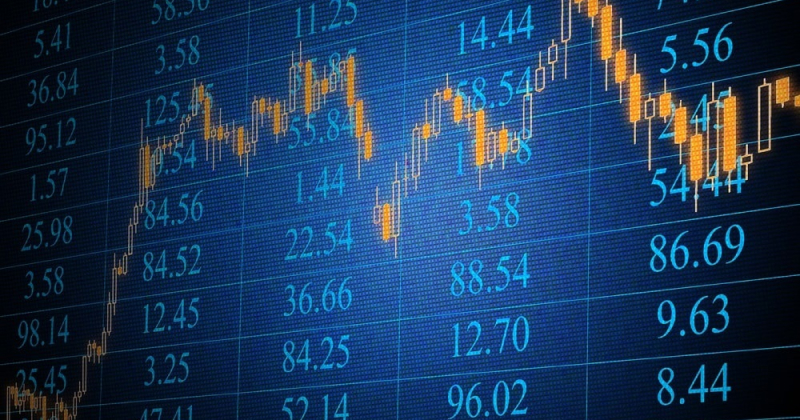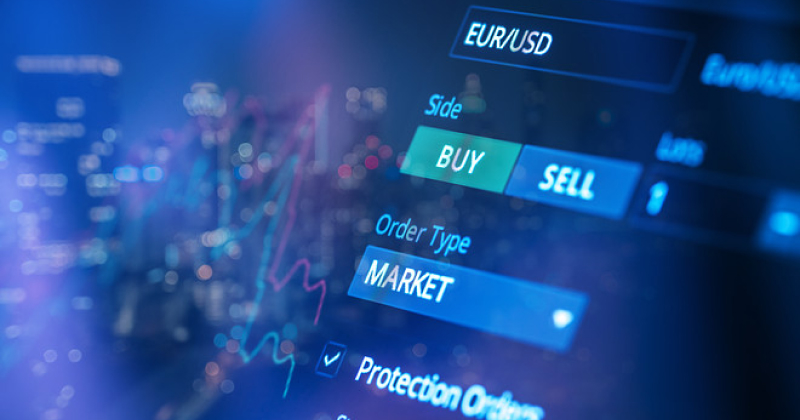What is CFD trading?

Are you looking to diversify your sources of earning money? CFD trading is one of the flexible ways of making that happen with little effort. A contract for Difference (CFD) is a financial derivative that enables a trader to speculate on fluctuating prices without taking ownership of the rapidly growing global financial markets. These include stocks, commodities, indices, Forex, shares, and without having to own the underlying assets. A trader can profit from the difference between the opening and closing price of a particular CFD instrument. While CFDs maximize the trader's profits, the risk of losing your money can also multiply significantly. In this piece, we shall look at the application and the concise ways of trading the contract for differences.
CFD trading explained
As a derivative product, you don't own the asset you trade, and you don't get to pay the UK stamp duty. In trading CFD, if the price goes up, the provider will pay the profit, but if the price goes down, the trader pays the loss to the broker, it is a two-sided contract.
CFDs are a leveraged derivative as they derive their value from an underlying asset. When you trade CFDs, you hold a position on the fluctuation in the value of the underlying asset. You essentially bet on if the price of the instrument will rise or fall compared to when you executed the contract.
All CFD providers allow investors to trade long (buying a CFD in the expectation that there'll be a rise in the price of the underlying asset) or short (selling a CFD expecting the price of the underlying asset to fall). When you close the contract, you expect to gain the difference between the opening price and the closing price of the contract.
The trader and the broker agree to exchange the asset's value between the opening and closing date of the contract. This contract mirrors the change in the price of the underlying asset with the investor's position.
CFDs are one of the most traded financial instruments in the UK and the European markets. It is increasingly growing in popularity as traders worldwide become more familiar with this system of trading. Traded predominantly via a broker rather than on a stock exchange, CFDs provide completely built-in leverage for investors looking to increase their profits and utilize a considerably more flexible tool for investing in the strength or weakness of long-term assets or index performance.
Day trading in CFD means that you don't hold your CFD trading position until the next day. Most day traders have to find a contract for difference a handy tool for making a profit on small moves in a stock, index, or currency.
In the US, if you are a resident/citizen, you are not allowed to trade CFDs. The reason is as a result of curtailment by the Securities and Exchange Commission (SEC) on over-the-counter financial instruments. Retail investors cannot trade CFDs except on a registered exchange, and exchanges in the US do not offer CFDs.
Risk of trading CFDs
CFD is a high-risk investment, and it is not suitable for those with low-risk tolerance. Some of the risks include;
- Investment risk; market may go against your speculation, and some or all of your investments may be lost.
- Counterparty risk; this occurs when the CFD provider or counterparty of the CFD contracts fails to fulfill their obligations to you; this can lead to a significant loss.
- Client money risk; the risk of giving up some or all of your money held by the CFD provider.
- Liquidity, gapping, and execution risks; market conditions may force you not to make a trade when you would like to.

Characteristics of CFDs trades
- CFDs are available on a large variety of assets like indices, stocks, sectors, currencies, and commodities.
- CFDs have no fixed contract size or expiry dates, unlike futures contracts.
- CFDs are traded on leverage so, only margin payment is required as an initial deposit.
- As long as the trade remains open, CFDs accounts will be debited or credited to reflect the price movements.
- a trader can go long (buy), or go short (sell) on CFDs.
- CFDs directly reflects the price movement of the underlying asset.
- There are no constraints on the entry or exit price of CFDs.
- Positions can be closed at any time the investor deems fit.
- CFDs can only be closed by making a second (reverse) trade.
- The commission is paid on each side of the CFD trade.
- Cash flows on trades are calculated daily.
- CFDs are not standardized; every broker has its terms and conditions.
- Contract for Difference in the UK is tax exempted.
CFD products
CFDs provide traders with opportunities across an extensive range of financial markets. These include stocks, currencies, commodities, indices, and treasuries. CFDs do not have expiry dates like options or futures contracts and can be traded on more than 4000 global markets. The contract is only closed by making a second, reverse trade.
The lack of expiry date is one feature that gives the CFDs an edge over options and futures contracts. The futures contracts expire on a particular day at a specific time, and it moves against you, even if the asset is expected to move up. But with a CFD, you can keep contracts open as long as possible.
What is CFD in Forex
As mentioned earlier, you can trade CFDs in various markets, including foreign exchange. Forex CFDs allow you to trade all currency pairs on the market— You can trade major pairs, including the GBP/USD, USD/JPY, EUR/USD, and AUD/USD. The Forex minor pairs like the AUD/JPY and EUR/GBP, and exotic Forex pairs like the USD/ZAR. Trading CFDs comes with a high level of risk, and as such, it may not be suitable for everyone. Before deciding to trade forex exchange CFDs, you should give due diligence to your investment objectives, levels of experience, and risk appetite. The chances are that you could lose all or some of your initial investments, which is why you are advised to invest money that you can afford to lose. It is advisable to seek financial advice where and when necessary.
Most traders, especially beginners, become addicted to leverage; it is vital to adopt a risk management plan to decide how much leverage you want and how much you are willing to risk.
In this type of CFD trading, the shares become the underlying asset. Just as it is with other CFD instruments, you do not own the asset, but you agree with the provider to speculate on the price movement of shares. Say you want to buy a CFD over Google shares; If the price of the shares goes up and you close out your CFD, the counterparty will pay you the difference between the current price of the shares and the price when you opened the contract. However, if the price of Google shares drops, then you would have to pay the difference in the price to the counterparty. This figure could be many times the amount of the initial amount deposited, because of leverage.

CFD stocks
A stock is the share of ownership of a company. When you purchase a company's stock, you become a shareholder in that company. You may benefit from dividends, can vote on crucial cooperate decisions, and possess certain rights. To buy a 100 stock in company Z, at $10 per stock, you need $1,000 (purchase equals ownership). The price of a stock fluctuates depending on several factors. You buy a stock at a quoted price, and the rise or fall in the stock value results in either profit or loss, this is a traditional way to trade the financial market.
A CFD is a contract between you, the investor, and the CFD provider, and it is an agreement to settle the difference between an opening price and the closing price of a particular asset. The CFD then tracks that asset price, and you take the position whether you speculate the asset will rise or fall in value.
So, when the stock becomes the underlying asset— you are purchasing a CFD from the provider, you don't own that asset, you only trade it on leverage. However, if you were you trade directly, you can only profit from an increase in price after you have bought the underlying asset; if the falls below your purchase price, you lose money.
CFD trading platform
When you are ready to trade CFD, choosing the right platform for your business is crucial. It is one vital step in your trading career. Technology has affected modern trading in no small measure, and you'd want to be acquainted with industry-leading CFD providers.
Today, brokers offer several trading platforms, ranging from manual to automated trading, providing different features and tools. The general advice (if you are a beginner) is to open a demo account for adequate practice before migrating to a live account where you trade with real money. The success of a contract for difference trading doesn't depend on picking the right CFDs to trade; the provider matters too. Here are some of the available platforms your provider may offer.
- MetaTrader 4 and 5 for Android and tablet PCs
- MetaTrader 4 and 5 on Windows and MAC
- MetaTrader Web Trader for browser-based trading
- MetaTrader 4 and 5 on iPhone and iPad tablets
When you trade CFDs, you are relying on the CFD provider to accept and process your trades. It is critical to get a regulated CFD provider with features that meet your trading goals.
What is CFD leverage trading
One of the significant advantages of CFD trading is the leverage; CFDs provide higher leverage than conventional trading. The usual leverage in the CFD market starts at a 2% margin requirement. Depending on the underlying asset, the margin requirements may go up to 20%. Lower margin requirements imply less capital outlay for the trader, and higher potential returns. Leverage and margin depend on the volatility and vary from broker to broker and from share price to share price or commodity to commodity. Leverage offered by the CFD providers allows you to open a larger position than what your actual capital allows. For example, if you want to buy 10,000 shares of X and its share price is 280p, the total investment would cost $28,000 (without commission or other charges). With CFD trading, however, you will need a small percentage of the total trade value to open the position and maintain the same level of exposure. If the leverage is 10%, you need an initial margin deposit of $2,800 to trade the same amount.
If X shares rise 10% to 308p, the value of the position is now $30,800. With an initial margin of just $2,800, the CFD has made a profit of $2,800, which is a 100% return on investment, compared to a 10% if the shares were bought physically. The critical point to consider, however, is that while leverages can potentially magnify profits, it also has the potential to magnify losses greatly, so if price moves contrary to your speculation, you could lose more than your initial capital.
As profitable as CFDs seems to be, it also has some accompanying pitfalls. Paying the spread on entries and exits cuts out the potential to profit from small price moves. Other trades will expose the trader to fees, more regulation, commission, and higher capital requirements, the CFD market has its way of trimming trader's profits by way of larger spreads.
Conclusion
The contract for difference (CFD) is a sophisticated trading instrument that comes with a high risk of losing money rapidly due to leverage. Over 70% of retail investor accounts lose money when trading CFDs. Before considering trading in CFDs, it is critical that you evaluate the risks involved with each style of trading and understand the differences and potential traps and errors. Build a trading plan and learn to eliminate emotions before you make trading decisions. Remember, you can only get better when you practice more. Start your trading with a reliable broker, understand their platform, and it is vital to test your strategies with a demo account before you trade real money.









